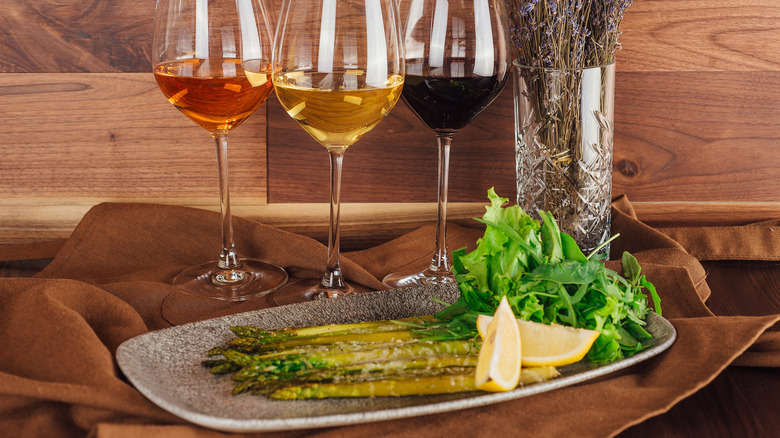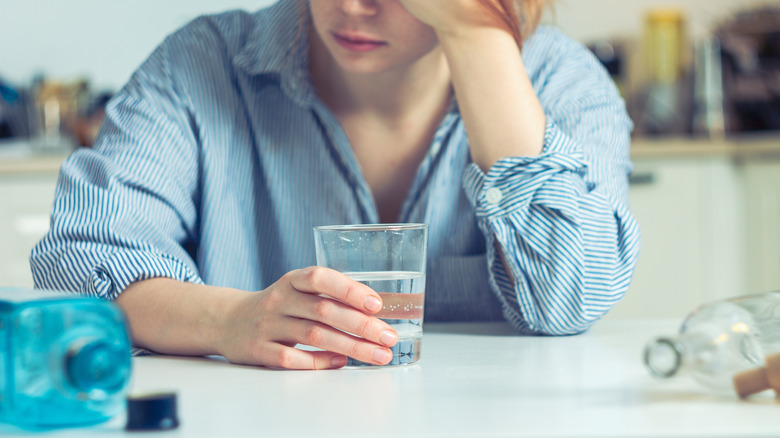Does Asparagus Actually Help Hangovers? Asking For A Friend
We've all been there: You wake up with a pounding headache, dry mouth, and an uneasy tummy. You can't decide whether to get a fast food burger at breakfast time, or a shot of Pepto-Bismol — or both. Maybe it was the company holiday party, or maybe it was just you and a bestie having a little too much fun on Taco Tuesday. Hangovers are literally the worst, especially when you're not in your early 20s anymore. It only makes sense that we drinkers are desperate for any kind of relief from hangovers, even it's a placebo effect. In the past, we've been told to nosh on greasy food, chug Pedialyte, slam back a Bloody Mary, or even try drinking pickle juice to cure booze flu.
So when some TikTok videos started making the rounds, proclaiming that asparagus is a natural way to prevent or cure your hangover, we were trepidatious but cautiously optimistic. After all, a 2009 study published in the Journal of Food Science had also previously suggested the vegetable could help prevent hangover symptoms. Could it be possible that if you eat asparagus before diving into a bottle of tequila, you'll feel much better the morning after? How, exactly?
Reasons offered include that the amino acids and minerals from the asparagus protect your liver from toxins. But wait, there's more! Additionally, they say that the asparagus's enzymes help break down alcohol and alleviate that hellish next-day hangover. Sound too good to be true? That's probably because it's actually not.
Why asparagus can't cure hangovers
While it's true that asparagus does contain amino acids and minerals, and is rich in vitamins like A, C, E, and K, it will not magically make your vodka-induced migraine go away. It's possible the confusion stems from the previously mentioned 2009 study that examined the effects of asparagus extract on liver cells in a lab setting. The scientific research did actually find that the asparagus extract improved the breakdown of alcohol and decreased the damage done by free radicals in the liver cells. Antioxidants (which do exist in asparagus) can neutralize those free radicals and promote healthier cellular function. Sounds great, doesn't it?
Unfortunately, eating some air-fried crispy Sichuan asparagus alongside your jug of white wine is not the magic bullet we want it to be. While it's promising that the asparagus extract did have a real effect on some liver cells in a petri dish inside a sterile lab setting, that doesn't always translate to real life. Of course, there are certainly upsides to eating asparagus besides being a supposed hangover helper; it's full of vitamins, and tasty, too. But it also has natural diuretic properties, as does alcohol. This means you urinate more and can become dehydrated, so it's important to replenish lost fluids. Because, ultimately, the best thing you can do after over-indulging in booze is boring and predictable: lots of water, and lots of time.

